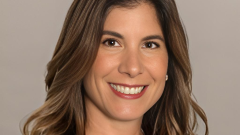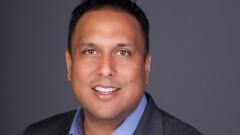Financial advisors can help clients "give themselves permission to place proper importance on their wealth accumulation," planner Preston Cherry said.
"When it's attached to a purpose, then it has a meaning," said Cherry, CEO of Green Bay, Wisconsin-based registered investment advisory firm
For planners like Cherry (who's also writing a book on the distinction between wealth and well-being), the question of defining when a client becomes "wealthy" reflects the
There are as many types of clients as there are types of relationship with money. Clients who come into an advisory practice may be searching for everything from peace of mind around financial affairs to advice on a hot stock to buy or a clever tax strategy.
People often discuss wealth and income "interchangeably, highlighting a common misunderstanding of the distinct roles they play in our financial lives," said Anh Tran, the managing partner of Irvine, California-based advisory practice
"While many of us work hard to earn a steady income, transforming that income into lasting wealth is a journey that requires strategic planning and discipline," she said. "By understanding the key differences between income and wealth and how to manage each effectively, you can take steps to plan your financial future and potentially leave a legacy for generations to come."
Financial Planning spoke with Tran, Cherry and the following six planners and executives about how to guide clients in finding a larger meaning behind the goal of attaining and enjoying wealth:
- Louis Barajas, co-founder of Irvine, California-based RIA firm
International Private Wealth Advisors , CEO ofBusiness Management LAB and an "opportunity coach" on the PBS television show, "Opportunity Knock$ " - Peter Mallouk, CEO of Overland Park, Kansas-based RIA aggregator
Creative Planning - Emlen Miles-Mattingly, founder of Madera, California-based RIA firm
Gen Next Wealth and host of the"Hello Retirement" podcast - Chloé Moore, founder of Atlanta-based RIA firm
Financial Staples - Abby Salameh, chief growth officer of Birmingham, Alabama-based hybrid RIA firm
RFG Advisory - Palash Islam, principal of San Ramon, California-based RIA firm
Synergy Financial Group
Planners have been homing in on long-developing fields such as behavioral finance, financial therapy or any manner of psychological concepts related to money for decades — to the point that an understanding of them is required for advancement in business and the profession.
Since 2021, the CFP Board has included "the psychology of financial planning" as one of the "
Those pursuits have not only expanded into new areas of research about how best to serve clients, but also paid off in business and portfolio gains, too. At up to 200 basis points above what customers would otherwise not have without hiring an advisor, "behavioral coaching" represents the biggest boost to clients' wealth from hiring a professional to manage their finances, according to the
In an often-cited 2007 commencement speech called "
"At a party given by a billionaire on Shelter Island, the late Kurt Vonnegut informs his pal, the author Joseph Heller, that their host, a hedge fund manager, had made more money in a single day than Heller had earned from his wildly popular novel 'Catch 22' over its whole history," Bogle said. "Heller responds, 'Yes, but I have something he will never have … enough.'"
For eight views on the nature of wealth from financial planners and other experts in the field, scroll down the slideshow. For other coverage at the intersection of behavioral finance, professional development and planning, see:
Merrill trailblazer Curtis Brown shares lessons on life and leadership The rich link between planning and psychology — and its vast potential In time of 'crisis,' George Kinder has a solution What to say to fearful clients as the presidential election nears CFP Board adds psychology to key study topics for CE credits, exam The definition of 'rich' — and its impact on taxes













